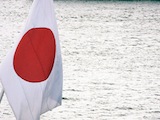As Growth Slows, Japan’s Consumer Prices Fall For the First Time in Four Months
Post Views 0Japan’s consumer prices fell for the first time in almost four months, a good indication that slowing global demand and the yen’s strength are weighing on growth and prolonging deflation.
The statistic bureau said today in Tokyo, that consumer prices, excluding fresh flood, fell 0.1 percent in October, matching the median forecast of 32 economists that were surveyed by Bloomberg News.
The yen’s surge to postwar highs against the dollar is lowering the importing costs, and is putting pressure on prices that have also been dampened by weaker demand at home. Europe’s deepening sovereign debt crisis is threatening the outlook for growth in the world’s third-largest economy.
”It is highly probable that consumer prices will keep falling at a moderate pace as the effect of oil prices and a strong yen gradually surface,” Yoshoki Shinke, who is a senior economist at Dai-Ichi Life Research Institute in Tokyo, said before the report. ”Price growth isn’t in sight for Japan.”
According to Shinke, the core prices fell in October, partly because of the fading effect of increases in tobacco taxes and causality-insurance fees in the same month last year. The core prices in Tokyo, who is a harbinger for the nationwide inflation, dropped 0.5 percent in the month of November.
Declines in crude oil costs amid the slowing global demand, combined with the yen’s appreciation, have made Japan’s energy imports much cheaper. Since September, retail gasoline prices in Japan have tumbled 1 percent. The Japanese currency had advance 6 percent against the dollar over the past six months.
Japan’s beef-bowl restaurant chains Zensho Co. (7550) and Matsuya Foods Co. (9887) cut prices this month to encourage consumers to loosen their purse strings. The government data shows that household spending has declined every month this year.
BOJ policy makers forecast that core prices will rise 0.1 percent in the year starting April 2012, before accelerating to 0.5 percent in the following 12 months. According to Kyohei Morita, who is the chief economist at Barclays in Tokyo, inflation may miss those forecasts and core prices will probably keep falling for two more years.
Yesterday, Yukio Hatoyama, who was Japan’s prime minister for nine months from 2009 to 2010, said at a forum that he has ”strongly” hoped the central bank would set an inflation target to stem price declines during his tenure and expressed the view to Governor Masaaki Shirakawa at the time. Hatoyama said that Shirakawa did not agree with the idea.
The BOJ has not yet adopted any numerical price targets and has pledged to keep its key interest rate near zero until it determines prices have stabilized. With a median of 1 percent, the BOJ board members say that they consider prices to be stable in the positive range of up to 2 percent.
As Growth Slows, Japan's Consumer Prices Fall For the First Time in Four Months by Harrison Barnes



 Expected Changes in 2016 to the Workplace
Expected Changes in 2016 to the Workplace  San Diego County Back to Full Employment
San Diego County Back to Full Employment  Top Canadian Companies You Want to Work For
Top Canadian Companies You Want to Work For  November Posts Another Strong Job Report
November Posts Another Strong Job Report  Atlanta’s Top Telecom, Cell Phone, and Electronics Manufacturers
Atlanta’s Top Telecom, Cell Phone, and Electronics Manufacturers  Job Growth Expected in West Michigan Through 2015
Job Growth Expected in West Michigan Through 2015  Best and Worst States for Teachers to Teach
Best and Worst States for Teachers to Teach